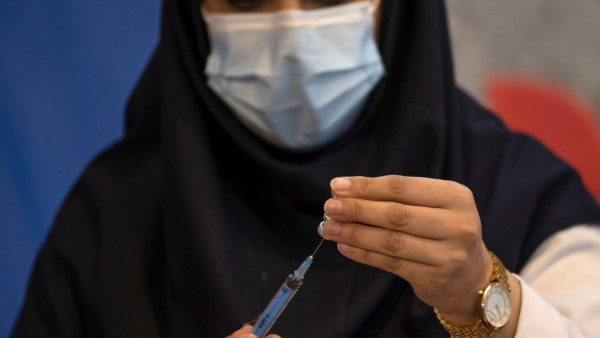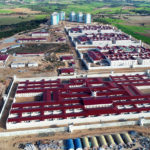A possible contamination with a live virus was reportedly the reason Iran decided to dump over a million doses of its homegrown coronavirus vaccine
Iran was reportedly forced to throw away over a million doses of it homegrown Covid-19 vaccine because they had become contaminated, possibly with a live sample of the virus.
An unnamed source told IranWire that a batch of 1.2 million doses of the CovIran-Barekat vaccine had been lost in July, but not because of the stated reason that there was a potential spillage at the manufacturing plant.
“At first the reason [publicly] given was mistakes made in vialing, which, by itself, is a disaster,” an unnamed source told IranWire.
“This has not been publicly disclosed, and we can rest assured it will not be. But there’s a strong possibility that they found live viruses in the vaccines,” they added.
The homegrown CovIran-Barekat vaccine, which was developed by Setad, a state holding company, and produced by the state-owned Shifa Pharmed, uses dead or deactivated samples of Covid-19 to stimulate a response in the immune system.
According to the source, the samples that were included in the 1.2 million contaminated doses were live and could infect the individuals they were supposed to be protecting.
The source added that “a number of people who were injected with Barekat showed severe [Covid-19] symptoms – more like those caused by the live virus.”
“Some others showed light symptoms. We’re talking about coronavirus infections here, not vaccine side-effects.”
The contamination only affected the discarded doses, and the vaccine could still be effective, although its true efficacy is still unknown, due to the lack of published information regarding tests for effectiveness.
When the news first broke in July that over a million doses had been lost, a spokesperson for Setad speculated that it could have been a filling issue.
“Given that this is a new production line, it is quite plausible that there will be problems in filling the vials; a batch of 1.2 million doses could get spoiled,” the spokesperson said.
Iran announced on Wednesday that 5 million doses of the CovIran-Barekat vaccine had now been produced and that 1.8 million had been delivered to the Ministry of Health.
But this statement contradicted a previous statement, made just one day earlier, by the vice president of Iran’s Razi Vaccine and Serum Research Institute, who said that less than a million had been produced.
Iran is currently witnessing a spike in the level of infections, with a seven day average of 35,443 infection a day.
To date, Iran has recorded 4.12 million infections and 93,473 deaths.
Source: the New Arab
***Show us some LOVE by sharing it!***



